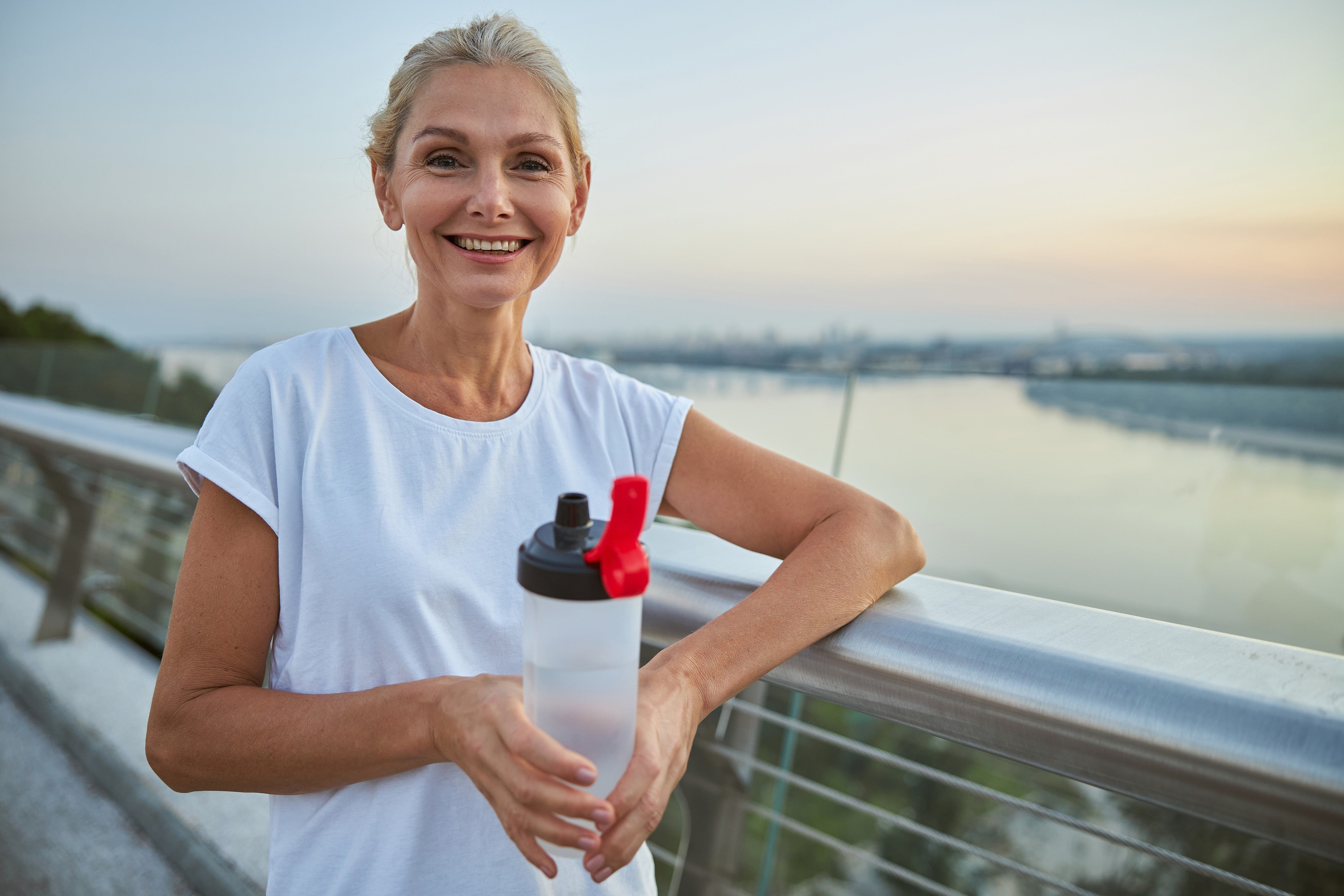Aging is inevitable—but how we age is now something we can influence. Thanks to breakthroughs in longevity research, we understand more than ever about the science of aging, how to measure it, and the daily steps that can help slow the process.
This guide will walk you through:
- The science of aging and what happens in the body over time
- New research on slowing biological age
- Why everyone is suddenly focused on anti-aging and longevity
- Practical steps you can take today to protect your health
- Which supplements support healthy aging—and why personalized testing like Honed’s HTMA Test Kit is the smartest place to start
What Is Aging, Really? The Science Behind the Process
Most people think of aging as wrinkles or gray hair, but inside the body, aging is the accumulation of microscopic damage. Scientists call these the hallmarks of aging:
- Telomere shortening – Telomeres protect our DNA, but they get shorter with every cell division, reducing the cell’s ability to function.
- Mitochondrial dysfunction – The “power plants” of our cells weaken, creating oxidative stress.
- Inflammaging – Low-grade, chronic inflammation drives tissue damage and disease.
- Nutrient imbalance – Even subtle mineral or vitamin deficiencies can speed up aging at the cellular level.
For decades, we thought these processes were fixed. But new science says otherwise.
What New Science Tells Us About Slowing Biological Age
Here’s the breakthrough: your biological age may not match your chronological age. Someone who is 50 could have the biology of a 35-year-old—or a 65-year-old—depending on lifestyle, stress, and nutrition.
Recent findings show we can influence biological age by:
- Epigenetics: Lifestyle factors (like diet, exercise, stress management) can switch genes on or off, impacting how quickly we age.
- Cellular repair pathways: Compounds like NAD+ boosters and polyphenols stimulate autophagy (the body’s cellular cleanup process).
- Nutrient optimization: Correcting mineral imbalances reduces oxidative stress and strengthens resilience.
- Testing biological age: DNA methylation tests and mineral analysis (like HTMA) give insight into how well your body is aging.
This explains why longevity research has become one of the most exciting fields in modern medicine.
Why Everyone Is Talking About “Not Aging” Right Now
It’s not just about vanity—there are cultural and scientific reasons behind the obsession with anti-aging and longevity.
- Longevity culture: We don’t just want to live longer; we want to feel strong, energetic, and sharp as we age.
- Biohacking movement: From continuous glucose monitors to mineral analysis, people are using data to optimize health.
- Role models of vitality: Athletes, entrepreneurs, and actors in their 50s, 60s, and beyond are breaking stereotypes.
- Post-pandemic awareness: Global health challenges reminded us how fragile the body is—and how much proactive care matters.
Healthy aging is no longer about chasing youth. It’s about protecting your healthspan—the years of life lived in good health.
How to Protect Your Health and Slow Biological Aging
The good news? You can start today. Here are research-backed steps to protect your health and slow down biological aging:
1. Prioritize Quality Sleep
Sleep regulates hormones, repairs tissues, and clears toxins from the brain. Adults should aim for 7–9 hours nightly.
2. Exercise Smartly
- Strength training maintains muscle mass (critical for longevity).
- Aerobic activity supports cardiovascular and cognitive health.
- Mobility and balance work reduce injury risk as you age.
3. Manage Stress Daily
Chronic stress accelerates cellular aging. Meditation, breathwork, and time in nature all support stress resilience.
4. Eat for Longevity
- Prioritize whole, nutrient-dense foods.
- Load your plate with colorful fruits and vegetables.
- Balance protein, fiber, and healthy fats to stabilize blood sugar.
5. Test Before You Supplement
This is where many people go wrong. Supplementing blindly can actually throw off mineral balance. For example, too much zinc can deplete copper, both of which are essential for aging well.
That’s why Honed’s HTMA Test Kit is so powerful: it shows your mineral and heavy metal profile so you know exactly what your body needs (and what it doesn’t).
Best Supplements for Healthy Aging and Longevity
While personalization is always best, here are nutrients you want to be thinking about in regards to longevity:
- Magnesium – Essential for over 300 enzymatic reactions & supports energy and sleep.
- Zinc & Copper (in balance) – Crucial for immune health and antioxidant defenses.
- Omega-3 fatty acids – Lowers inflammation & protects the brain and heart.
- Vitamin D – Supports bone density, immunity, and mood.
- Adaptogens (Ashwagandha, Rhodiola) – Help regulate stress hormones.
- CoQ10 & NAD+ boosters – Improve mitochondrial energy and reduce oxidative stress.
But again—the key to success is precision. By using the HTMA Test Kit, you can identify deficiencies or excesses and create a supplement plan that supports your unique biology.
Final Thoughts: Healthy Aging Is About Choice
Aging is natural. But how you age—your vitality, resilience, and healthspan—is shaped by your daily choices.
The science is clear: with the right habits, targeted nutrition, and personalized supplement strategies, you can slow down your biological aging process and protect your long-term health.
If you’re ready to take the first step, start with data. Honed’s HTMA Test Kit makes it easy to uncover your mineral profile, optimize your supplementation, and begin aging well—with confidence.
Healthy aging isn’t about living forever—it’s about living better, longer.

